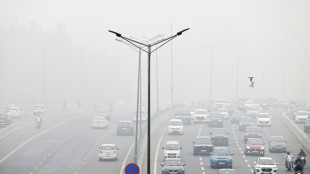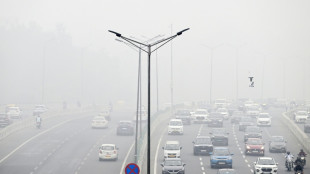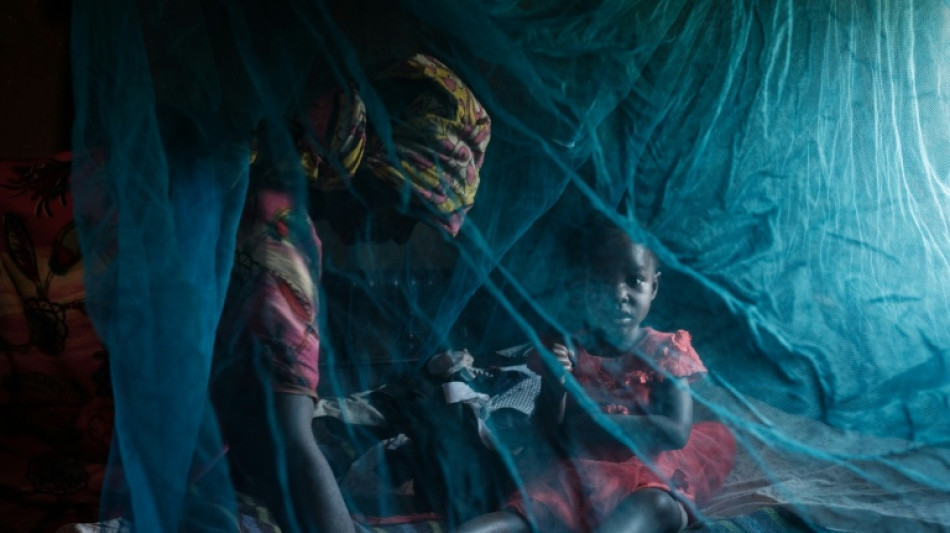
-
 Chess mourns US grandmaster dead at 29
Chess mourns US grandmaster dead at 29
-
Nigerian monarch takes on oil giant in search of environmental justice

-
 Paris verdict due in TotalEnergies 'greenwashing' case
Paris verdict due in TotalEnergies 'greenwashing' case
-
Indonesia to repatriate British grandmother on death row: govt source

-
 Virginia Giuffre shines light on Epstein ordeal in new memoir
Virginia Giuffre shines light on Epstein ordeal in new memoir
-
France and Europe: fertile AI training ground?

-
 After deadly floods, Spaniards fight to save photos
After deadly floods, Spaniards fight to save photos
-
Trump warns Hamas not to breach Gaza deal as Vance heads to Israel
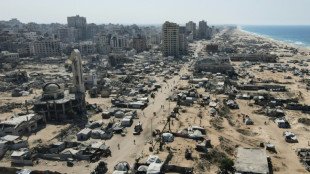
-
 China hawk Takaichi named Japan's first woman PM
China hawk Takaichi named Japan's first woman PM
-
Sanae Takaichi, Iron Lady 2.0 poised to be Japan PM

-
 Liverpool's Ekitike returns to face floundering Frankfurt
Liverpool's Ekitike returns to face floundering Frankfurt
-
Cape Verde captain getting to grips with 'dream' World Cup qualification

-
 'Enhancing the game': Football Manager includes women's clubs
'Enhancing the game': Football Manager includes women's clubs
-
France's ex-president Sarkozy to be jailed over Libya funding conviction

-
 Blue Jays sink Mariners to reach World Series
Blue Jays sink Mariners to reach World Series
-
France intensifies hunt for Louvre raiders

-
 EU takes aim at plastic pellets to prevent their nightmare cleanup
EU takes aim at plastic pellets to prevent their nightmare cleanup
-
Equities rally on China-US hopes, new Japanese PM lifts Tokyo

-
 'Dream come true' for US pianist Eric Lu after Chopin competition win
'Dream come true' for US pianist Eric Lu after Chopin competition win
-
Nepal's 'hidden' mountains draw new wave of climbers

-
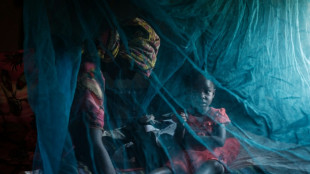 Climate change, population growth threats as malaria fight stalls
Climate change, population growth threats as malaria fight stalls
-
EU timber imports linked to deforestation on Indonesia's Borneo: NGOs

-
 Canada crime bill and rap group fracas spark free-speech debate
Canada crime bill and rap group fracas spark free-speech debate
-
Peru's Gen Z lead movement against crime, political paralysis

-
 Migrants brace for hostile climate after Chile's election
Migrants brace for hostile climate after Chile's election
-
Trump demolishes part of White House for new ballroom

-
 Nuno admits Hammers 'have a problem' after Brentford defeat
Nuno admits Hammers 'have a problem' after Brentford defeat
-
Maccabi Tel Aviv to decline tickets for European tie at Aston Villa

-
 US, Australia sign rare earths deal as Trump promises submarines
US, Australia sign rare earths deal as Trump promises submarines
-
Former Bucs running back Martin died in custody: police

-
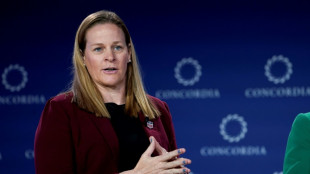 US confirms Mexico, Costa Rica, Jamaica as co-hosts for 2031 Women's World Cup bid
US confirms Mexico, Costa Rica, Jamaica as co-hosts for 2031 Women's World Cup bid
-
Mourinho expects more Newcastle silverware after League Cup triumph

-
 Crisis-hit Argentina inks $20 bn rescue with US
Crisis-hit Argentina inks $20 bn rescue with US
-
US appeals court says Trump can deploy soldiers in Portland

-
 Colombia awaits ruling on ex-president Uribe's house arrest
Colombia awaits ruling on ex-president Uribe's house arrest
-
Disgraced Andrew may face more legal woes: UK biographer

-
 Dembele, Marquinhos return for PSG's trip to Leverkusen
Dembele, Marquinhos return for PSG's trip to Leverkusen
-
Bolivia's president-elect says will resume ties with US after nearly two decades

-
 Shaheen Afridi appointed Pakistan ODI captain for South Africa series
Shaheen Afridi appointed Pakistan ODI captain for South Africa series
-
Howe looking forward to facing 'incredible' Mourinho in Champions League

-
 Athapaththu conjures miracle as Sri Lanka snatch victory over Bangladesh
Athapaththu conjures miracle as Sri Lanka snatch victory over Bangladesh
-
Trump to Australian ambassador: 'I don't like you either'

-
 Servers, software and data: how the cloud powers the web
Servers, software and data: how the cloud powers the web
-
Trump says Australia will get submarines as PM visits

-
 Athletes swap skis for skates in a glimpse of winter sport's future
Athletes swap skis for skates in a glimpse of winter sport's future
-
Brazil greenlights oil drilling in sensitive Amazon region

-
 Struggling Rangers appoint Rohl as new manager
Struggling Rangers appoint Rohl as new manager
-
Louvre heist: five things to know about missing jewellery

-
 Stock markets climb as China-US trade fears ease
Stock markets climb as China-US trade fears ease
-
Colombia recalls ambassador to US as Trump-Petro feud intensifies
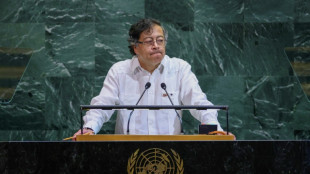

Climate change, population growth threats as malaria fight stalls
The fight against malaria has stalled after two decades of progress, with climate change and population growth among factors threatening a resurgence of the potentially fatal disease, campaigners said Tuesday.
Insufficient funding for increasingly costly prevention programmes risked efforts against the mosquito-borne illness at a cost of hundreds of thousands of lives and billions of dollars, they said.
The impact would be most keenly felt in Africa which accounts for 95 percent of cases of the disease that claimed 590,000 deaths worldwide in 2023, the African Leaders Malaria Alliance (ALMA) and Malaria No More UK said in a new report.
Several African countries had reported upsurges in cases between January and June 2025 after heavy rainfalls, they said.
Malaria mortality has halved over the past two decades, said the report released ahead of a November 21 meeting in South Africa to secure contributions to the Global Fund to Fight AIDS, TB and Malaria, which covers 59 percent of malaria spending.
"Insufficient funding, however, has caused malaria progress to stall," it said.
"A perfect storm of climate change, rising drug and insecticide resistance, trade disruptions, and global insecurity further undermine the efficacy of malaria interventions."
There were around 263 million cases of malaria globally in 2023, an increase of 11 million cases from the previous year, according to the UN's World Malaria Report 2024.
- Spreading -
"Increases in temperature and flooding due to climate change have increased the number of mosquito breeding sites," ALMA executive secretary Joy Phumaphi told AFP.
In Rwanda, for example, these sites now existed at higher altitudes than previously, she said in an interview.
The malaria-carrying Anopheles stephensi mosquito from Asia has meanwhile spread into Africa while insecticide resistance has increased, she said.
New-generation prevention methods, such as dual-insecticide mosquito nets and the use of drones to disperse chemicals that kill mosquito larva, were effective but also more costly, she said.
At the same time, Africa's population had almost doubled in the past 30 years. "It's more expensive, but we also have to cover a bigger population than before," Phumaphi said.
Malaria -- most prevalent in Nigeria -- is a leading cause of worker and student absenteeism, and also causes learning and cognitive disruption in children.
Besides saving lives, ridding countries of the disease would have "massive" returns on economies, including by boosting productivity and tourism, Phumaphi said.
Malaria "leads to huge amounts of out-of-pocket payments for households and is a major cause of poverty," she said. "Once this market is protected, their purchasing power is enormous."
An anti-malaria vaccine in use in 23 African countries was around 40 percent effective and had to be accompanied by other prevention measures. But a new vaccine undergoing human trials was hoped to show 80 percent efficacy, she said.
Funding modelling showed that a halt in all prevention interventions could cost Africa $83 billion in lost GDP by 2030, alongside 525 million additional cases and 990,000 more deaths on top of the already high annual toll, the report said.
F.Mueller--VB


